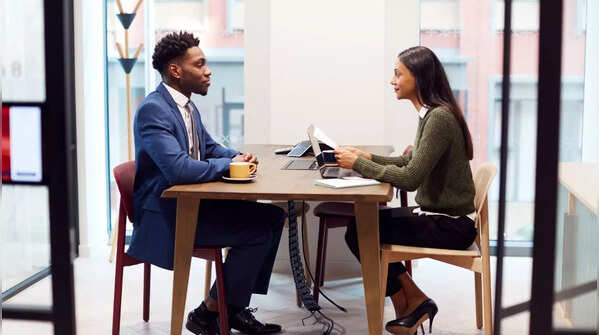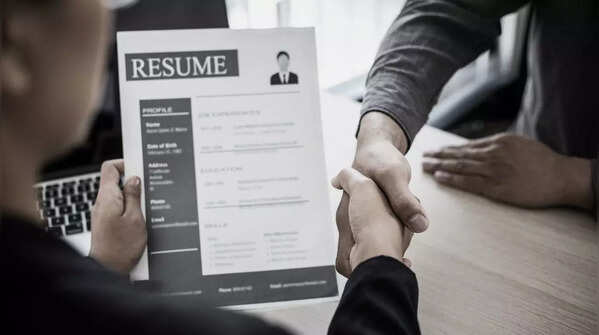Landing an interview often means you possess the foundational skills and experience required for the role. However, what truly distinguishes candidates is their overall presentation – encompassing their communication style, reactions, and ability to engage in meaningful conversation. These qualities aren't developed through last-minute cramming or generic tips; they stem from being present, composed, and thoughtful in your responses. Given that interviews are often brief, your demeanor carries significant weight.
Here are seven practical habits that can significantly improve your interview performance:

Feeling pressured to immediately respond? Resist the urge. Hasty answers can often sound disorganized and unclear. Taking a moment – just a second or two – to pause is not only acceptable but recommended. This brief pause allows you to gather your thoughts and formulate a coherent response. Furthermore, it demonstrates that you're providing thoughtful answers.

Encountering a question that throws you off guard? Don't attempt to bluff or fabricate an answer. Instead, be upfront about your lack of knowledge. Then, articulate your problem-solving approach. Interviewers value your ability to tackle unfamiliar challenges, not your possession of all the answers. This demonstrates adaptability and a willingness to learn.

Career gaps or job transitions are common occurrences. Avoid attempting to conceal or over-explain these situations, as it can often be counterproductive. Instead, offer a concise and honest explanation for the reason behind the gap or change. Whether it was for personal reasons, skill development, or exploring new avenues, being straightforward and composed conveys confidence.

Joining the interview too early might create an awkward situation. Conversely, arriving even a few minutes late can project an image of carelessness. Aim to join approximately 10 minutes beforehand – providing ample time to prepare without imposing on the interviewer's schedule.

A basic understanding of the company's recent activities, leadership, and strategic focus can significantly impact the interviewer. This shows genuine interest in the company. Moreover, it equips you to formulate more insightful questions and articulate how your skills and experience align with their objectives.

Even in virtual interviews, your posture and movements matter. Maintain a straight posture, avoid concealing your hands, and make occasional eye contact with the camera. While you don't need to be overly demonstrative, project attentiveness, engagement, and active listening.

Concluding with "I don't have any questions" can come across as uninspired. Before the interview, take the time to formulate a couple of genuine questions – perhaps about the team dynamics, the initial responsibilities, or how success is measured within the role. Even two well-considered questions can leave a lasting positive impression.

Older articles
 Rishabh Pant's Unconventional Batting Redefining Cricket, Says Greg Chappell
Rishabh Pant's Unconventional Batting Redefining Cricket, Says Greg Chappell
 JPG to PDF: A Graphic Designer's Guide to File Conversion and Quality Preservation
JPG to PDF: A Graphic Designer's Guide to File Conversion and Quality Preservation
 Ashada Gupt Navratri 2025: Unveiling Dates, Sacred Rituals & Hidden Significance
Ashada Gupt Navratri 2025: Unveiling Dates, Sacred Rituals & Hidden Significance
 Android Users Urged to Update Now: High-Risk Security Flaws Exposed in Multiple Versions
Android Users Urged to Update Now: High-Risk Security Flaws Exposed in Multiple Versions
 Samsung Galaxy A55 vs. Vivo V30 Pro: Flagship Features Face Off in Mid-Range Android Battle
Samsung Galaxy A55 vs. Vivo V30 Pro: Flagship Features Face Off in Mid-Range Android Battle
 SA20 Teams Get Green Light for Six Player Retentions Ahead of Auction
SA20 Teams Get Green Light for Six Player Retentions Ahead of Auction
 Yoga for Weight Loss: 7 Poses to Maximize Calorie Burn
Yoga for Weight Loss: 7 Poses to Maximize Calorie Burn
 X Cracks Down: Half a Million Accounts Banned in India for Policy Violations
X Cracks Down: Half a Million Accounts Banned in India for Policy Violations
 Delhi Prodigy, 9, Holds Chess Titan Magnus Carlsen to Draw in Online Blitz
Delhi Prodigy, 9, Holds Chess Titan Magnus Carlsen to Draw in Online Blitz
 Van der Dussen to Captain South Africa in T20I Tri-Series Against New Zealand and Zimbabwe
Van der Dussen to Captain South Africa in T20I Tri-Series Against New Zealand and Zimbabwe